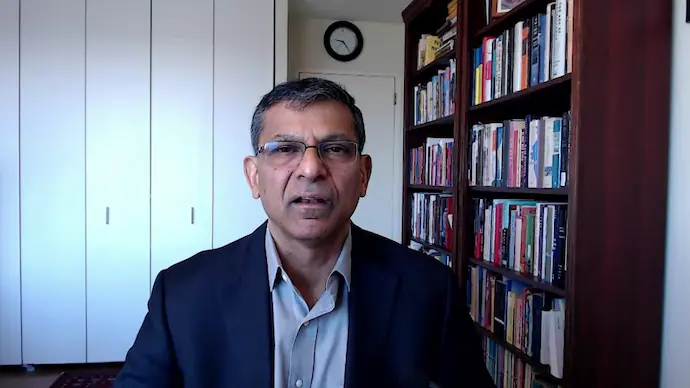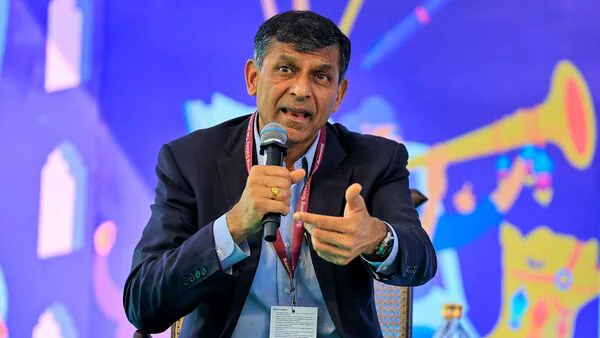Former RBI Governor Raghuram Rajan calls Trump’s 50% tariffs a wake-up call, warns US-India relationship has broken down and urges diversification and reforms.

Rajan Warns: Trump’s 50% Tariffs a ‘Wake-Up Call’; US-India Ties in Crisis
A Strategic Shift — From Partnership to Power Play
Former Reserve Bank of India Governor Raghuram Rajan has issued a blunt warning: the newly imposed 50% tariffs by the Trump administration are a stark “wake-up call,” signaling that the India–US relationship has clearly broken down. Rajan framed the tariffs not as economic tools but as instruments of political and economic coercion, describing them as part of a broader trend in which trade, investment, and finance are being weaponized.
India, previously bracketed with other Asian nations under roughly 20–25% tariffs, now finds itself disadvantaged—its base tariff remains at 25%, while others face much lower rates. “So the relationship clearly has broken down,” Rajan remarked, underlining the shift from negotiation to confrontation.
Who Benefits? Who Suffers? Reassessing Russian Oil Strategy
A significant driver of these punitive tariffs, Rajan noted, is India’s continued imports of discounted Russian oil. While refiners may be pocketing excess profits, exporters—especially SMEs—are bearing the brunt through heavier tariffs.
“This is a wake-up call,” he argued. Rajan strongly suggested India rethink its reliance on Russian crude: “We need to ask who benefits and who is hurt. … If the benefit is not large, perhaps it is worth considering whether we should continue these purchases.”.
Small Exporters at Risk; Consumers Also Pay the Price
Rajan emphasized that this move disproportionately affects low-margin exporters—shrimp farmers, textile manufacturers, jewelry artisans—jeopardizing jobs and livelihoods. On the consumer front, he pointed out that American buyers will now face a 50% markup, making it a lose–lose scenario.
Power Over Fairness — Tariffs as Tools of Statecraft
Rajan demystified Trump’s tariff rationale:
- First, trade defecits are seen not as structural imbalances but as evidence of exploitation.
- Second, tariffs are viewed as easy revenue streams, perceived to fall on foreign producers—not consumers.
- Third, tariffs increasingly function as non-military instruments of geopolitical force .
“This is essentially an exercise of power. Fairness is not the issue here,” Rajan asserted.
Strategic Autonomy and Economic Diversification as the Path Forward
Rajan urged India to diversify: “Let us not become dependent on any single country to a large extent. Let us look east, to Europe, to Africa, and continue with the US, but unleash reforms that will help us achieve the 8–8.5% growth needed to employ our youth.”.
He advised engaging with multiple global partners—China, Japan, Europe—while also pursuing self-reliance, supply-chain integration, and structural reforms to increase competitiveness.
Raghuram Rajan’s commentary pulls no punches: Trump’s punitive 50% tariffs transcend mere trade policy—they underscore a deeper diplomatic rupture. Small exporters are caught in the crossfire, and even U.S. consumers will pay more. Instead of unilateral dependence, Rajan advocates a strategic pivot toward diversified partnerships, bold reform, and renewed economic self-reliance.
READ ALSO…….Virar Building Collapse Kills 15, Injures Dozens; Builder Held Licensed Under Fire















 Categories
Categories









